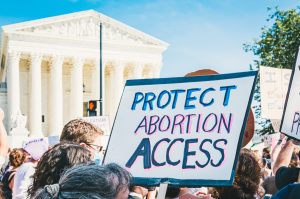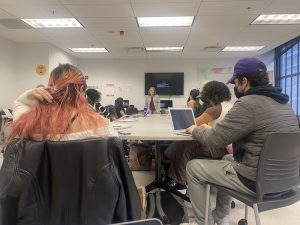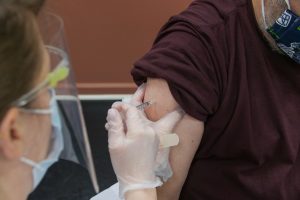
In response to Mayor Rahm Emanuel’s proposed 2014 fiscal budget, Aldermen Tuesday questioned the city’s health commissioner about the department’s past performance and future plans.
The proposed $8.7 million budget released Oct. 23, allows the city to balance its finances without increasing or introducing new property, sale or gasoline taxes, according to a statement from the mayor’s office.
Bechara Choucair, commissioner for the Department of Public Health, answered an array of questions pertaining mostly to the suggested tax increase for cigarettes in the city, something residents have experienced in the past.
Prior to Tuesday’s meeting of the Chicago City Council’s Committee on Budget and Government Operations, the Department of Public Health along with the support of Mayor Emanuel, held four interactive public town hall meetings in September to talk with Chicagoans about the impact mentholated cigarettes had on city youth and what could be done to curb their usage.
While council members touched on the possible 75 cent per pack tax increase, many members where wondering what could be done to increase taxes on smokeless tobacco products like sniff and chew. Choucair said the city municipal government has no power to tax “other tobacco products” and that the power resides with the state legislature to decide whether to tax those products.
Some concerns about increasing the tax per pack concerns whether this would directly push the elderly and younger tobacco users to non-filtered cigarettes, said Ald. Toni Foulkes (15th) of the South Side ward. Foulkes asked Choucair what the department was doing, or intending to do, to address this possibility.
“The department just needs to continue to be aggressively active against tobacco use, in general, in the city,” Choucair said. “Additionally, we want to provide as much support and help for people who are wanting to quit. People can call one of our quit lines, which has seen an increase of calls by 12,300 over the past year, to get an individualized program in helping them reduce and ultimately end their tobacco use.”
If the council approves the tax increase, the department and city has estimated that they would receive an additional $10 million in revenue from the increase alone that could be used for Chicago Public Schools, according to a statement from the mayor’s office.
Choucair told aldermen about the decrease of the obesity rate in Chicago Public School students entering kindergarten, lowering from 24 percent down to 19 percent or 1,000 students entering CPS at a healthier weight over a ten year period.
Further, the number of under-insured or uninsured individuals who have accessed mental health clinics has gone up by 5,000, Choucair said, adding that the clinics are serving more people, but are more efficient with tax dollars. This is following Emanuel’s 2012 decision to close six of the city’s 12 mental health clinics that created an uproar of concerns and protests fighting against the decision.
Choucair was met with support from a number of aldermen, including Ald. Bob Fioretti (2nd), who commended Choucair and the rest of his department on their attentiveness to issues presented to them and their willingness to work with public officials with concerns brought to them by constituents.
Despite the support Choucair and the department received from the council, some members were thinking forward to the 2015 fiscal year, knowing the task to approve a budget would prove to be much more difficult.
“We have to dollar for the police department and the fire department’s pensions next [fiscal] year,” Ald. Ariel Reboyras (30th) told a Chicago Talks reporter. “This year’s budget isn’t simple, but it’s easier than next year will be.”













Be First to Comment